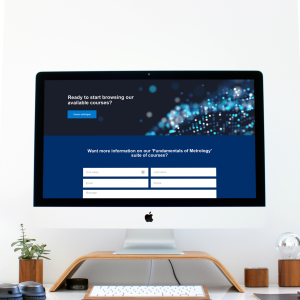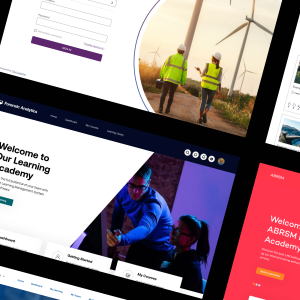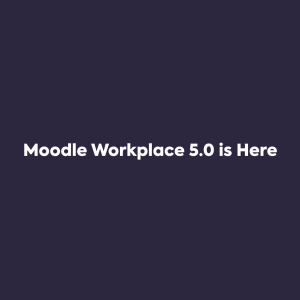In the final blog post of our series we’re going to explore the impact that effective reporting and analytics can have on your platform. Whilst it’s important to provide engaging content within an accessible, easy to use platform it’s also imperative that you understand how users interact with this material to identify areas where the learning experience can be improved.
ENHANCING LEARNER ENGAGEMENT
Learner engagement is a critical factor in the success of any e-learning program. Reporting and analytics tools can allow you to track how learners are interacting with your content. Are they completing courses? Which sections are they spending the most time on? Where do they drop off?
By analysing this data, you can identify the strengths and weaknesses of their courses. For example, if a significant number of learners are consistently dropping off at a particular module, it might indicate that the content is too difficult, not engaging enough, or perhaps too lengthy. With this insight, you can make informed decisions to redesign or improve that section, thereby enhancing overall engagement.
MEASURING LEARNING OUTCOMES AND ROI
All e-learning programmes have a desired outcome or objective, and being able to effectively measure and report on these ensures that you can measure the effectiveness of your efforts against your own aims and objectives.
Having a robust system of reporting allows you to collect specific, relevant data relating to Key Performance Indicators (KPIs) such as course completion rates, assessment scores, and learner satisfaction.
By continuously monitoring and analysing this data you can accurately assess whether these specific outcomes are being achieved through your LMS. For example if your goal is to ensure that a certain percentage of your user base has successfully completed a specific training module, you can clearly track either progress online.
Being able to accurately and efficiently report on a number of KPIs around your e-learning efforts can help you to justify the investment in your platform within your organisation.
IMPROVING COURSE CONTENT AND STRUCTURE
As we touched on in a previous blog post, ensuring your course content is up to date and relevant is an essential element to ensuring high levels of engagement from your users. With analytics you can gain insights into how effective your course content and structure is.
Studying data from how learners interact with your platform can unearth insights into ways you can improve your content. For example, if many learners are failing a particular quiz, it might indicate that the quiz is too difficult or that the preceding content didn’t adequately prepare them.
Similarly if a course is particularly successful or popular there could be elements to the course which can be applied to a less successful course. This feedback loop is essential for maintaining the quality and relevance of the course content.
SUPPORTING COMPLIANCE AND ACCREDITATION
Your organisation may operate in a heavily regulated industry whereby a lot of mandatory training is required in order to comply with certain legal and professional standards. Certain reporting tools can help to automate the process of ensuring these requirements are met by generating reports on learner progress, course completion and assessment results.
Moreover, analytics can help identify areas where compliance training might be falling short, enabling you to make timely interventions to ensure that all regulatory requirements are met.
IDENTIFYING AND ADDRESSING LEARNING GAPS
Learning gaps are a significant challenge in any educational setting. E-learning analytics can help identify these gaps by tracking learner performance and engagement across various topics and modules. If a learner is consistently underperforming in a particular area, this can be flagged and additional resources or alternative learning methods could be offered to address the gap.
Addressing these gaps is crucial for ensuring that all learners achieve the desired learning outcomes. It also helps in creating a more inclusive learning environment where each learner’s needs are met.
TITUS MARKETING SUPPORT
By leveraging reporting and analytics, educators can transform e-learning from a simple content delivery method into a powerful engine for growth and development, both for learners and the organisations that provide them.
At Titus we have a number of solutions to aid our customers in achieving their reporting and analytics goals, get in touch today to arrange a call with the team.







